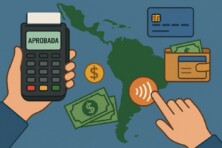Identifying new use cases for Brazil’s central bank digital currency (CBDC), Visa created a programmable finance platform for SMEs, particularly farmers, using tokenized farm contracts to access global capital markets

Image: pixabay.com
Implementing its proposal in response to the ‘Lift Challenge Real Digital’ by Banco Central do Brasil, Visa has introduced the programmable financing platform, allowing local farmers to tokenize traditional financing contracts.
The project was developed in cooperation with Microsoft, Agrotoken and Sinqia. It will enable SMEs, most notably farmers, to get greater access to global capital markets, facilitate interoperability between local fiat and digital currencies, discover the best prices for their production, improve operational processes, and find new growth opportunities.
The programmable capabilities of digital currencies allow automatic transaction settlement only when certain contract conditions are met. The technology enables more efficient capital usage and reduced counterparty risks while leveraging the security, stability, and safety of a national central bank, using CBDC as a reliable settlement currency, says Visa. Besides, the platform will feature offline payment capability using a blockchain-based onboarding and consent management process, further expanding the financing options range.
To bring existing financial processes and assets on-chain for the prototype platform, Agrotoken utilized its agriculture-based tokenization expertise from previous projects implemented in Brazil and Latin America while Visa created a tokenization process for turning existing Brazilian legal documents into an on-chain tradeable NFT.
In addition, Visa has developed an onchain sealed-bid auction mechanism for the new platform. The mechanism is based on smart contracts which enable investors across the globe to participate in the financing bid. For the farmers and other SMEs it means getting the prices for their goods more competitive.
The main problem for many agricultural sectors worldwide is that access to financing is largely limited to local markets, where only a few global conglomerates may be present. Moreover, such financing solutions are often hard to access, involve lots of bureaucracy and sometimes involve unfavorable clauses leading to sizable losses, so many entrepreneurs decide to avoid them. Therefore, agri-fintech solutions globally try to address financial inclusion issues in various regions.
Through this project, Visa tries to better understand how blockchain-based programmable finance products could target existing market pain points and offer solutions to real-world use cases.









